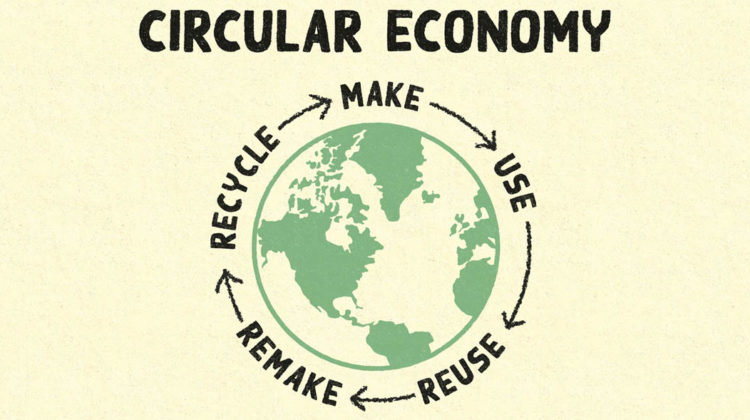
The John Lewis Partnership, owner of John Lewis and Waitrose, has launched a £1million fund to support projects designed to end the UK high street’s ‘throwaway’ culture and create a more circular economy.
The Circular Future Fund, which is aimed at identifying trailblazing innovators who are challenging the current ‘make, use, throw away’ model, is inviting academics, charities and start-ups that have ideas for ways that we can reduce the environmental impact of the food, clothing and gadgets that we buy, to pitch for a share of the money.
According to Marija Rompani, the group’s director of ethics and sustainability, tackling the climate crisis, biodiversity loss, waste and pollution is going to require a ‘different kind of thinking’.
‘We live in a world of finite materials and we need to start protecting them before it’s too late,’ she said. ‘This is why we’re particularly looking for projects that are regenerative and can eliminate waste or pollution from the design stage.’
Working in partnership with environmental charity Hubbub, John Lewis will use the fund to attempt to unearth new scalable ideas that could then be shared widely in order to accelerate the transition to a more circular economy.
‘If we want to tackle climate change and reduce our environmental impact, we have to place more value on the goods we produce, buy and use,’ said Saskia Restorick, director at Hubbub. ‘There are some exciting innovations happening right now and it’s fantastic that the John Lewis Partnership is creating this fund to back some of these.’
The £1million in funds, which John Lewis raised from the sale of 10p plastic bags in stores, will be divvied out in grants of between £150,000 and £300,000. Academia, charities, social enterprises and businesses that are less than five years old are being asked to submit bids by 9 January 2022. An independent panel will review the bids in March and the grants will be awarded the following month.
The new fund follows on from Waitrose and Hubbub’s Plan Plastic, a £1million grant fund launched in 2019, which was also raised from sales of single-use plastic bags and supported five organisations engaged in projects to reduce plastic waste.


